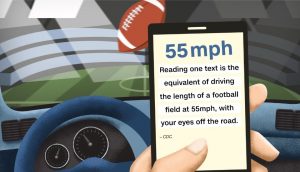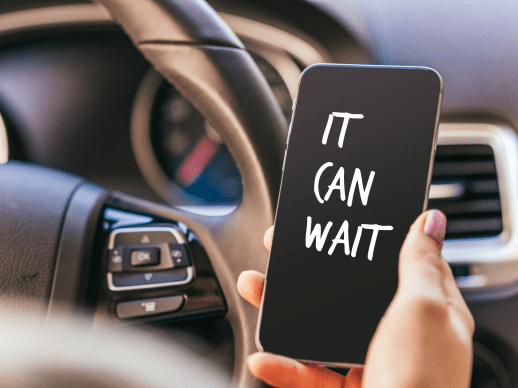SALEM ‐ Beginning July 1, distracted driving penalties in Oregon will start adding up. Distracted driving is already exacting a high price – with fatalities and serious injuries occurring regularly in crashes where a driver is distracted – and now the cost for the driver may go even higher.
Offenses under the state’s distracted driving law will begin counting toward elevated sanctions beginning July 1. Here’s how the penalties can add up:
- First offense, not contributing to a crash: Class B violation, with a fine up to $1,000.
- Second offense, or first offense, if it contributed to a crash: Class A violation, with a fine up to $2,500.
- Third offense in ten years: Class B misdemeanor, with a fine up to $2,500 and potential for 6 months in jail.
Not being fully focused on the complex task of driving can have disastrous results. From 2012-2016 in Oregon, there were 10,814 crashes involving a distracted driver, resulting in 70 fatalities and 16,503 injuries.
“Distracted driving is an epidemic in Oregon, and the consequences can be deadly,” said Troy E. Costales, Transportation Safety Division administrator. “Everyone using the transportation system – drivers, bicyclists and pedestrians alike – should put away the distractions when traveling to help eliminate these tragedies.”
This year, in unofficial numbers, Oregon has had 172 fatalities, up 17.8% from the same time last year. While we don’t yet know the factors that contributed to these crashes, anecdotal information indicates many of these involved vehicles traveling out of their lane – and that can be the result of drivers being distracted.
“Distractions occur in many ways and Oregon’s law stresses the need to put your electronic devices aside,” Costales said. “What a driver must do is commit to keeping ‘hands on the wheel, mind on the road.’”
On October 1, 2017, an updated version of Oregon’s Distracted Driving law went into effect.

Here are the basics:
- If you are under 18, you can’t use anything while driving, even hands-free.
- Drivers are not allowed to use any phone function that requires holding or touching.
- Hands-free or built in devices are allowed under the law.
- Cell phone mounts that cradle your phone on your dash are considered a hands-free device and functions that use a single touch or swipe to activate or deactivate the device or a function of the device are acceptable.
- Navigation Apps, Music Apps can only be used if you keep both hands on the wheel.
- Just standing still in traffic, stopping at a red light or a stop sign isn’t enough: your car must be parked safely.
- Calling 911 in case of an emergency is only okay if no one else can initiate the call.
The law includes cell phones, tablets, kindles, laptops, GPS units, mobile music players or any electronic device. - Exemptions include those making medical emergency calls, truck and bus drivers following federal rules, two-way radio use by school drivers and utility drivers during the scope of their employment, police, fire, ambulance, and emergency vehicle operators during the scope of their employment and ham radio operators.
Learn how you can help stop distracted driving and save lives.


